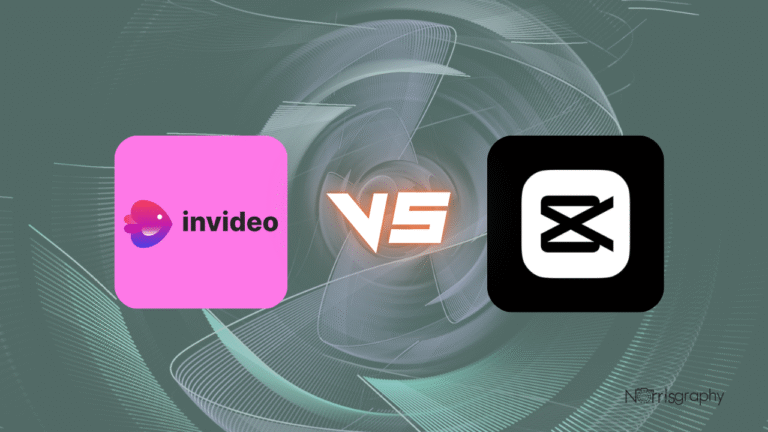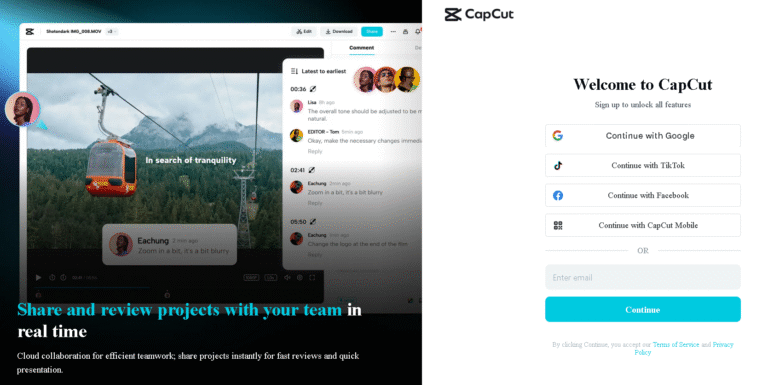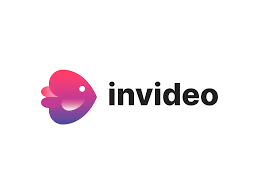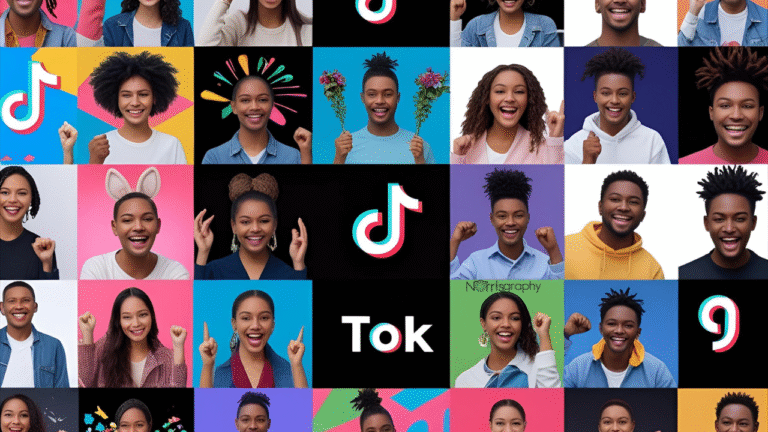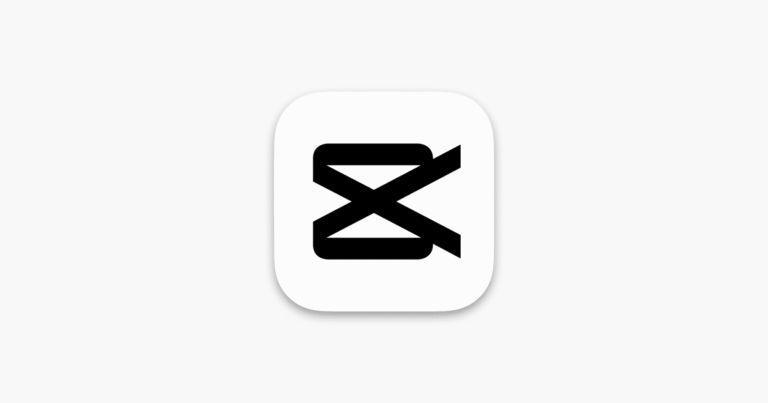
The question “Is CapCut banned in India?” has been a topic of significant interest among content creators, video editors, and tech enthusiasts in India. CapCut, a popular video editing application developed by ByteDance, the same Chinese company behind TikTok, has faced scrutiny due to geopolitical tensions and concerns over data privacy.
Our Take
CapCut is more than an editing app, it’s your shortcut to professional, scroll-stopping videos. With trendy templates, AI tools, and smooth effects, anyone can create content that grabs attention fast. Upgrade to CapCut Pro for exclusive effects, premium music, and ad-free editing.
| Best For | Video Editing |
| Price | $9.99/month |
| Discount | 25%+ discount over the monthly plan |
| Best Plan | Pro Annual Plan |
In this article, we will discuss the current status of CapCut in India, going into the reasons behind its ban, the implications for users, and potential workarounds and alternatives.
Is CapCut Banned in India?
Yes, CapCut is banned in India. The Indian government imposed a ban on CapCut, along with several other Chinese apps, on June 29, 2020, citing concerns over data privacy and national security. CapCut remains unavailable on official app stores like Google Play Store and Apple App Store in India.
Explanation of the Ban
The ban on CapCut in India is part of a broader crackdown on Chinese applications initiated by the Indian government in mid-2020. This decision was driven by escalating tensions between India and China, particularly following a border clash in the Galwan Valley in June 2020. The Ministry of Electronics and Information Technology (MeitY) issued a statement declaring that over 250 Chinese apps, including CapCut, TikTok, UC Browser, and ShareIt, were “prejudicial to the sovereignty and integrity of India.” The government alleged that these apps were involved in activities that could compromise user data privacy and pose a threat to national security.
CapCut, being a ByteDance product, was specifically targeted due to its association with TikTok, which was one of the first apps banned in this wave. The Indian government raised concerns about unauthorized data collection and transmission to servers outside India, potentially in China.
These concerns were fueled by reports of improper data handling practices, including the storage and access of user data, which raised questions about how securely personal information was managed. The lack of transparency regarding data practices and the potential for misuse were central to the decision to ban CapCut.
The ban was enacted under Section 69A of the Information Technology Act, 2000, which allows the government to block access to online content in the interest of national security, public order, or to prevent incitement to any cognizable offense. The decision was also influenced by broader geopolitical considerations, including India’s push for digital sovereignty and the protection of its citizens’ data from foreign entities.
Impact on Users and Content Creators
The ban on CapCut has had a significant impact on Indian users, particularly content creators who relied on the app’s user-friendly interface and robust editing features. CapCut was a go-to tool for creating high-quality videos, offering templates, effects, and music integration that made it popular among TikTok users and other social media enthusiasts. The sudden removal of the app from official app stores left many users searching for alternatives and workarounds.
For content creators, the ban disrupted workflows and forced a transition to other video editing platforms. While some adapted to alternatives like Adobe Premiere Rush, KineMaster, or InShot, others faced challenges in replicating CapCut’s seamless editing experience. The absence of CapCut also sparked discussions about the broader implications of app bans on creativity and the digital economy, as many creators depended on the app to produce content for platforms like Instagram Reels and YouTube Shorts.
Workarounds: The Role of VPNs
Despite the ban, some users in India have turned to Virtual Private Networks (VPNs) to access CapCut. A VPN allows users to bypass regional restrictions by masking their location, making it appear as though they are accessing the app from outside India. By downloading CapCut from foreign app stores or accessing its features through a VPN, users can continue to use the app, albeit with potential risks.
Using a VPN to access CapCut involves downloading a reliable VPN service, connecting to a server outside India, and then installing the app via an APK file (for Android) or a foreign App Store account (for iOS). Popular VPNs like TurboVPN, NordVPN, or ExpressVPN are often recommended for this purpose. However, this workaround comes with caveats.
Using a VPN to bypass a government ban may violate local regulations, and there are security risks associated with downloading APK files from unofficial sources, such as malware or data breaches. Additionally, features requiring an internet connection, such as cloud-based effects or templates, may still function but could be slower or less reliable due to VPN usage.
Misinformation and Confusion
The status of CapCut in India has been subject to misinformation, particularly on social media platforms like X, Facebook, and WhatsApp. False claims about the app’s availability or the lifting of the ban have circulated, causing confusion among users. For instance, a 2023 article incorrectly stated that CapCut was not banned in India, likely due to outdated information from before the 2020 ban. Such misinformation is exacerbated by the rapid spread of rumors online, often fueled by the app’s popularity and the lack of clear communication from authorities.
The confusion is further compounded by CapCut’s association with TikTok, which was banned in June 2020. Some users mistakenly believed that CapCut was unaffected because it was a separate app, but its ownership by ByteDance placed it under the same scrutiny. To address this, users are advised to rely on official announcements from the Indian government or trusted news sources to stay updated on the app’s status.
Broader Context: Privacy and National Security
The ban on CapCut reflects broader concerns about data privacy and national security in the digital age. India’s decision to ban Chinese apps was part of a global trend of scrutinizing foreign tech companies, particularly those with ties to China. Similar actions have been taken in other countries, such as the United States, where TikTok faced potential bans over similar concerns. The Indian government’s focus on data sovereignty highlights the importance of protecting citizens’ personal information from being accessed or misused by foreign entities.
The allegations against CapCut and other Chinese apps centered on their data collection practices. Reports suggested that these apps were transmitting user data to servers outside India without proper authorization, raising fears of surveillance or data exploitation. While ByteDance has denied these allegations, the lack of transparency in data handling practices has fueled distrust. The Indian government’s response was to prioritize national security over the convenience of popular apps, a move that has sparked both support and criticism.
Alternatives to CapCut
With CapCut unavailable in India, users have turned to alternative video editing apps that offer similar functionality. Some popular options include:
- KineMaster: A versatile video editing app with a wide range of tools, templates, and effects, suitable for both beginners and professionals.
- InShot: A user-friendly app for quick video edits, popular for social media content creation.
- Adobe Premiere Rush: A professional-grade editing tool with cloud integration, ideal for advanced users.
- PowerDirector: Known for its robust features and intuitive interface, offering a comparable experience to CapCut.
These alternatives have helped fill the gap left by CapCut, though some users report differences in ease of use or feature sets. Content creators are encouraged to explore these options to find the best fit for their editing needs.
Also see Top 10 CapCut Alternatives for Professional Video Editing
Will the Ban Be Lifted?
There is no indication that the ban on CapCut will be lifted. While some apps banned in 2020, such as PUBG Mobile, were later allowed to return under new ownership or with enhanced privacy measures, CapCut has not been included on the government’s whitelist. The decision to lift the ban would depend on ByteDance addressing India’s concerns about data privacy and national security, as well as shifts in geopolitical relations between India and China. However, given the ongoing scrutiny of Chinese apps, the prospects for CapCut’s return remain uncertain.
Also Read Is CapCut Banned in Australia?


